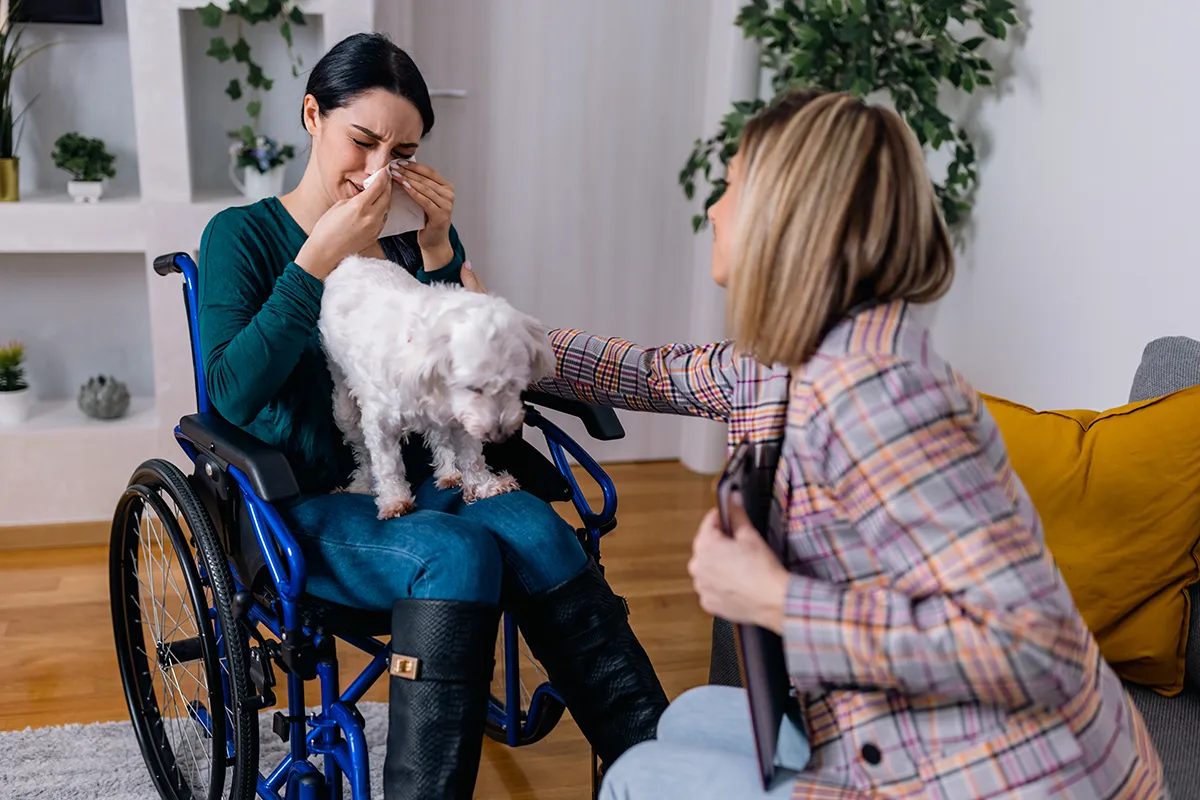Dependent adult abuse can be a complicated issue to recognize and report, but knowing the signs and resources available is important for both mandated and permissive reporters.
Dependent adult abuse is a complex and often hidden form of mistreatment that targets individuals aged 18 and older who, due to physical or mental conditions, require assistance from others. This abuse comes in various forms, including physical and sexual abuse, financial exploitation, neglect, abandonment, and even abduction. Abusers may be those entrusted with the care, such as family members, friends, or professional caregivers. They might isolate the individual, withhold necessary services or items, inflict physical harm or mental suffering, or engage in manipulative tactics to maintain control.
What Types of Dependent Adult Abuse Are There?
Abuse can present itself in many different ways, which can make recognizing it difficult. Here are some examples of how specific types of abuse can appear:
- Physical: Hitting, kicking, burning, dragging, over or under medicating
- Sexual Abuse: Unwanted sexual contact, sexual exploitation, forced viewing of pornography
- Abandonment: Desertion or willful forsaking by anyone having responsibility for care
- Isolation: Preventing the individual from receiving mail, telephone calls, visitors
- Financial: Theft, misuse of funds or property, extortion, duress, fraud
- Neglect: Failure to provide food, clothing, shelter, or health care for an individual under one’s care when the means to do so are available.
- Self-neglect: Failure to provide food, clothing, shelter, or health care for oneself.
- Mental suffering: Verbal assaults, threats, causing fear.
- Abduction: Removal from this state and restraint from returning to this state of any elder or dependent adult.
Signs of Dependent Adult Abuse
As listed above, dependent adult abuse can be seen in a variety of different instances. Dependent adults may have trouble advocating for themselves or recognizing abuse when it’s happening, so it’s important to recognize the signs of abuse and learn when to step in.
- Here are some potential warning signs of dependent adult abuse:
- The explanation for an injury is inconsistent with its possible cause
- Recent changes in the dependent adult’s thinking; for example, if they seem confused or disoriented
- The caregiver is angry, indifferent, or aggressive toward the dependent adult
- Personal belongings, papers, or credit cards are missing
- The dependent adult appears hesitant to talk openly
- Lack of necessities, such as food, water, utilities, medications, and medical care
- The caregiver has a history of substance abuse, mental illness, criminal behavior, or family violence
- Another person’s name added to the client’s bank account or important documents, or frequent checks made out to cash
Where and When to Report
While there are specialized circumstances, such as abuse occurring in the prison system, which is reported to the Attorney General’s Office, most reports will go to one of the following organizations.
- Adult Protective Services (APS)
- Long-Term Care Ombudsman Program (LTCOP)
- Local Law Enforcement
Always, if someone is in immediate danger of harm, call 911. If you are unclear about where you should file a report, you can contact your local APS or LTCOP representative, or consult with your supervisor on your agency’s policy.
County APS agencies investigate reports of abuse of elders and dependent adults who live in private homes, apartments, hotels, or hospitals, or who are, or soon will be, experiencing homelessness. For most types of abuse, County APS programs have 10 days to respond to your report.
APS provides services, including responding to reports of known or suspected abuse or neglect, conducting, and investigating. And arranging for the delivery of services from available community agencies.
Note: APS is not intended to interfere with the lifestyle choices of elders or dependent adults, nor to protect those individuals from the consequences of their choices. For this reason, an elder or dependent adult who has been abused may refuse or withdraw consent at any time to preventive and remedial services offered by an APS agency.
However, APS is required to conduct an investigation when there is an allegation that a crime has been committed, regardless of whether the elder or dependent adult wants the investigation to go forward or not.
The Benefits of Reporting Abuse
Being proactive and reporting abuse can make the difference between life and death in some situations, but there are also several other benefits to survivors. Here are some ways reporting can make a positive change:
- The dependent adult is given options to keep them safe from harm
- The APS worker can link the client or family to needed community resources
- Unaware family members and friends can be alerted and step in to help
- The APS worker can discover ways to help the caregiver handle stress appropriately
- In some cases, the abuser can be prosecuted, preventing future harm from being committed
Mandatory reporter training is available at MandatedReporterTraining.com, where you can access training on recognizing Elder/Dependent Adult Abuse, with CE courses available for Registered Nurses and Fiduciaries.



